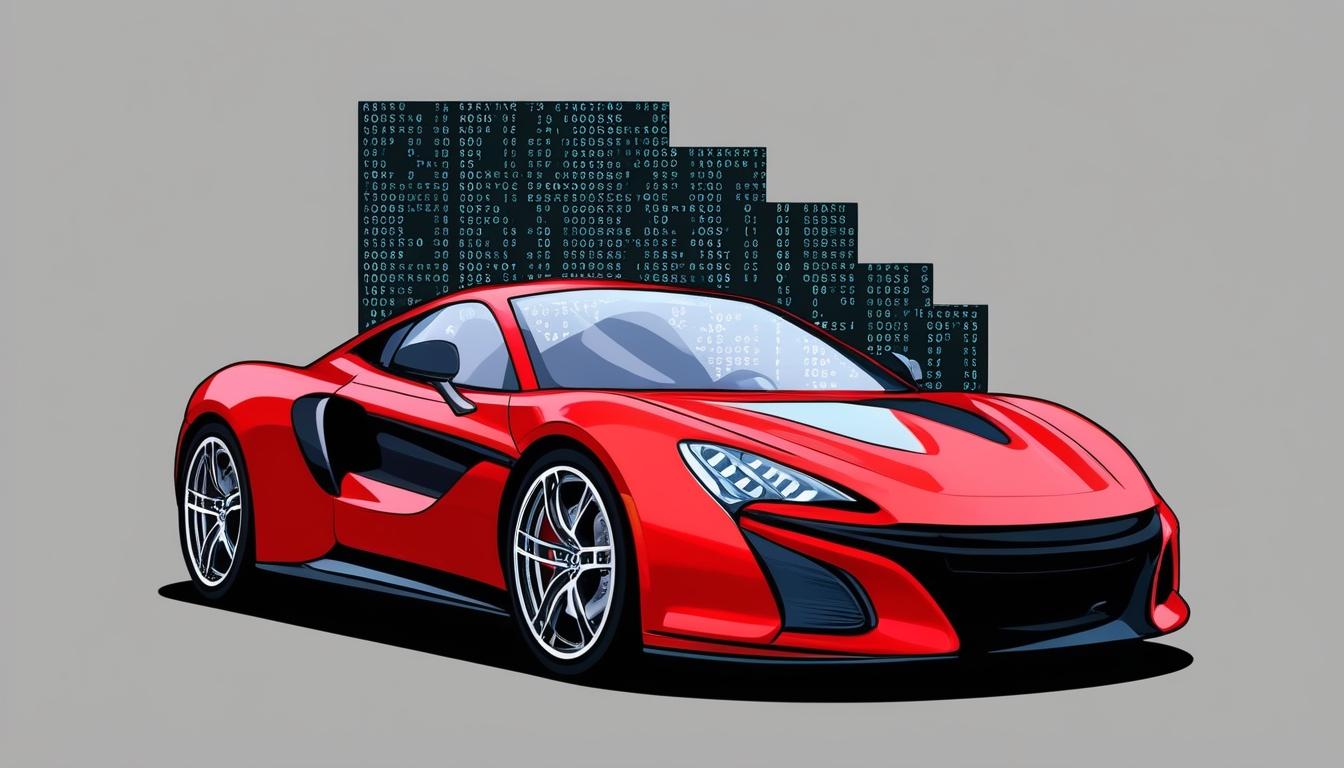In a landscape marked by rapid technological progression, blockchain technology emerges as a pivotal innovation with the potential to significantly alter business operations and interactions. This is particularly pertinent for stakeholders in the automotive industry, where the used car market stands to experience transformative changes rooted in enhanced efficiency and transparency.
Blockchain, the underlying technology powering cryptocurrencies like Bitcoin — which recently surpassed $100,000 in value — has evolved from a niche concept to a foundational pillar for advanced applications across a range of sectors, including automotive. This shift suggests that businesses within the industry need to embrace and understand blockchain not merely to keep pace, but to harness its capabilities for future growth.
One of the critical areas where blockchain promises to enhance the automotive sector is in auto remarketing. An immutable ledger system enabled by blockchain technology can securely document every vehicle’s history, encompassing maintenance, ownership changes, and accident records. Such a system offers several advantages:
Reduction of Fraud: By establishing an unchangeable record of vehicle histories, dealers and buyers are provided with reliable information, thereby diminishing the likelihood of misrepresentation in sales.
Streamlining Auctions: The implementation of smart contracts could automate the auction process, executing agreements when pre-set conditions are fulfilled. This advancement would expedite vehicle sales and ownership transfers while decreasing the need for intermediaries.
In the realm of subprime auto financing, blockchain technology holds considerable potential for innovation:
Enhancing Credit Scoring: Decentralised data sources can contribute to more accurate and dynamic credit profiles, empowering lenders to better assess risk. This could lead to improved financing opportunities for underserved markets.
Automating Compliance: Regulatory compliance, known for its complexity and time constraints, may benefit from blockchain’s capability to automate compliance checks via smart contracts, thereby alleviating administrative burdens and reducing the potential for human error.
Buy-here, pay-here (BHPH) dealers also stand to gain from the integration of blockchain into their operations:
Secured Transactions: Blockchain allows for precise records of transactions related to car payments or services, ensuring transparency and clarity. This clarity could also facilitate repossession procedures through verifiable ownership records.
Tokenisation of Assets: Vehicles can be transformed into digital assets through tokenisation, paving the way for innovative financing models that allow partial sales of a vehicle's value or utilisation of these assets as collateral in a secure framework.
Beyond these targeted applications, blockchain technology presents overarching benefits for the automotive sector:
Cost Sunduction: By obviating intermediaries and automating various processes, companies can significantly cut operational costs, which is beneficial for businesses that operate on narrow margins.
Enhanced Customer Experience: The provision of verifiable records and accelerated transaction processes promises to improve the buying and financing experience for consumers.
Supply Chain Management: Blockchain’s tracking capabilities can ensure part authenticity and mitigate the problem of counterfeit components within the market.
The trajectory for blockchain adoption within the automotive industry appears to be phased:
Short-Term (1-3 Years): Initial small-scale implementations as businesses undertake pilot projects to familiarise themselves with blockchain uses.
Mid-Term (4-8 Years): Increased adoption levels as successful applications are identified, leading to more sophisticated technological integrations.
Long-Term (9-10 Years): Widespread adoption is anticipated as blockchain becomes a familiar and essential component of automotive operations.
As the automotive sector gears up for this technological shift, businesses are encouraged to consider several strategic steps:
Education Initiatives: Developing a comprehensive understanding of blockchain's functions within enterprises can be fostered through workshops and training sessions.
Pilot Initiatives: Conducting small-scale pilot projects to assess the real-world benefits of blockchain without incurring significant initial costs can be pivotal.
Strategic Collaborations: Forming partnerships with technology firms or start-ups focused on blockchain can provide the requisite expertise for efficient implementation.
Brad Smith, a notable automotive data strategist with over 20 years of experience in emerging technologies, emphasises that blockchain's role transcends mere buzzword status, offering tools crucial for trust enhancement, cost reduction, and fostering innovation across the industry. His extensive background includes consultancy in blockchain, AI, and data science solutions through his firm, Leroy Lynn, LLC.
As blockchain technology continues to advance, awareness and proactive engagement are essential for businesses aiming to remain at the forefront of this transformation within the automotive sector. The future appears promising for the automotive industry as it charts a course toward greater reliance on blockchain innovations.
Source: Noah Wire Services
